Country Coalition
Tanzania
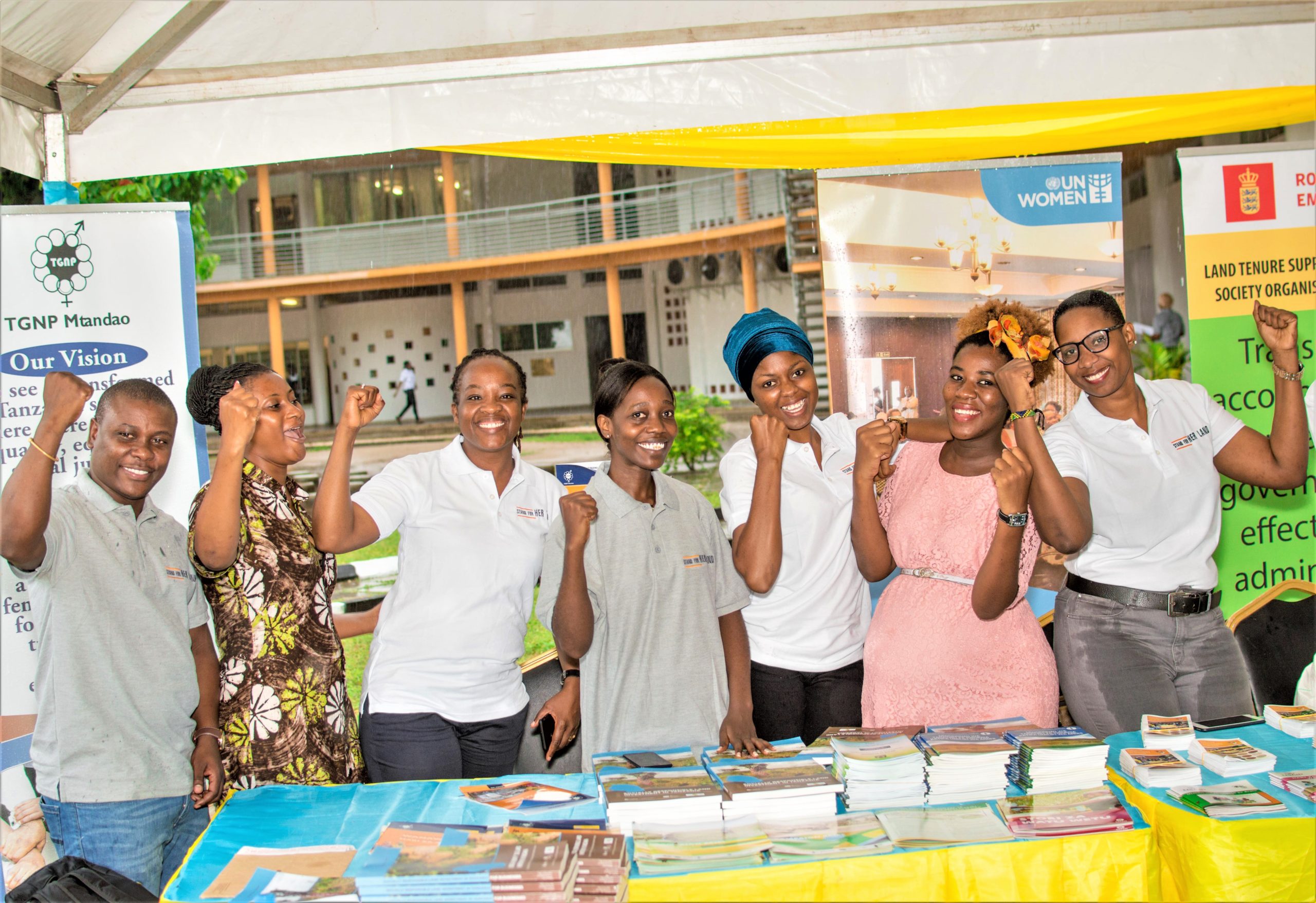
Coalition members at the national launch of the S4HL Tanzania campaign on November 21, 2019
GOAL
To promote and protect inclusive secure land tenure and create an enabling environment so that all Tanzanian women can access, own, control, inherit, use, make decisions about and benefit from land and its produce by 2030
MEMBER ORGANIZATIONS
FOUNDED
January 2019
NATIONAL LAUNCH
November 2019
OVERVIEW
Over the past 25 years, Tanzania has adopted several laws and policies that enshrine women’s equal rights to land. Civil society played an important role in this achievement through collaborative, coordinated advocacy.
Building on previous initiatives and campaigns, many of these same women’s and land rights advocates have come together to form Stand for Her Land Tanzania. Now 35 organizations strong – representing diverse issue areas that meet at the intersection of women’s land rights – the coalition is taking collective action to close the persistent gap between law and practice that prevents women from claiming their equal rights to land. Raising their collective voice, the coalition is working to bring down the structural, social and other implementation barriers that prevent Tanzanian women from claiming their equal rights to land.
Read the S4HL Tanzania strategy to learn more about what the Stand for Her Land Tanzania campaign coalition plans to achieve in the years to come – and what it will take to get there.
KEY FOCUS AREAS
1
2
Women’s use of land for economic benefit
3
Women’s participation in decision-making bodies and processes in land governance
4
Women’s secure land rights in regions with land- based investments
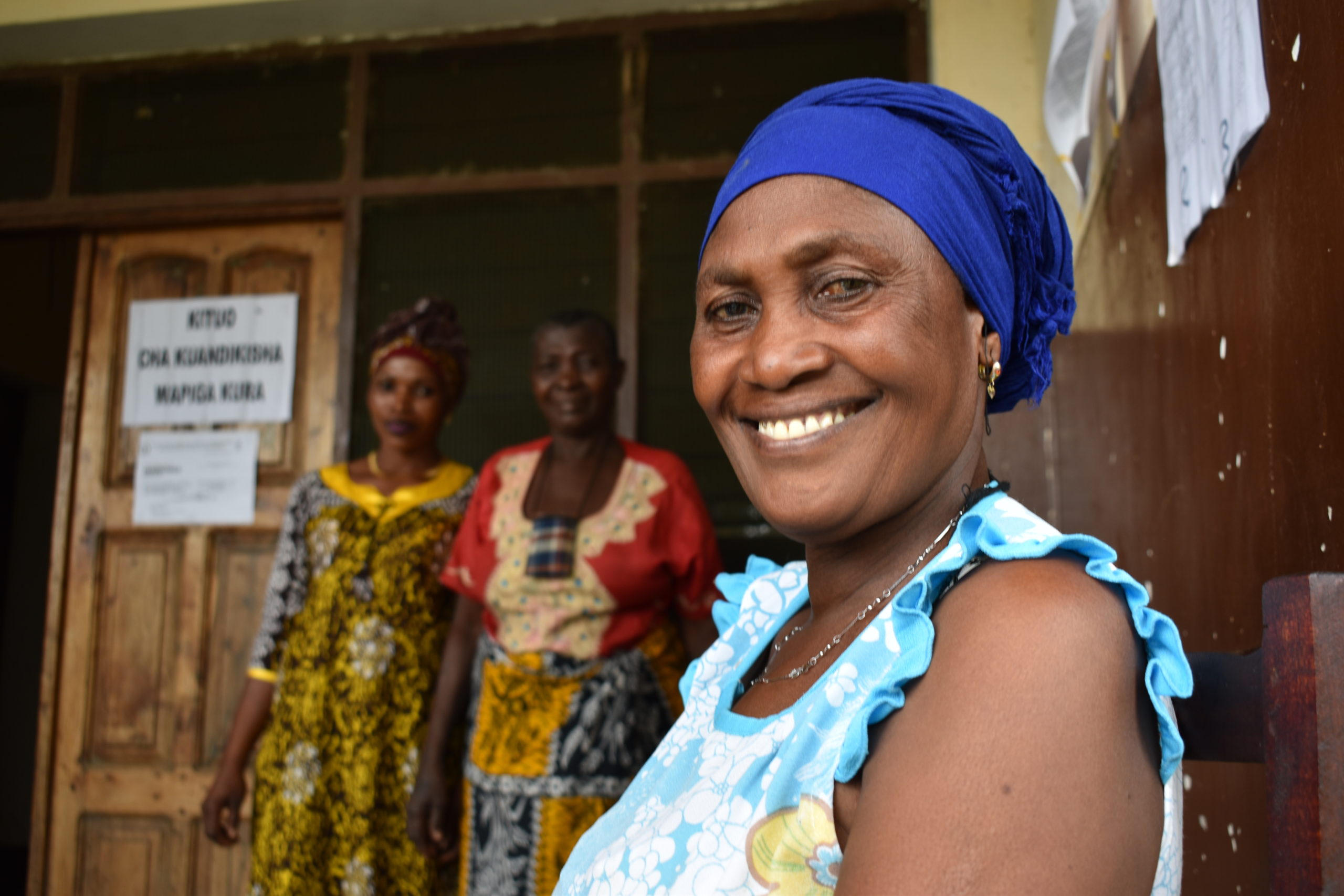
My customary certificate of occupancy acts like a weapon. Nobody can take my land away now because I have full ownership rights.
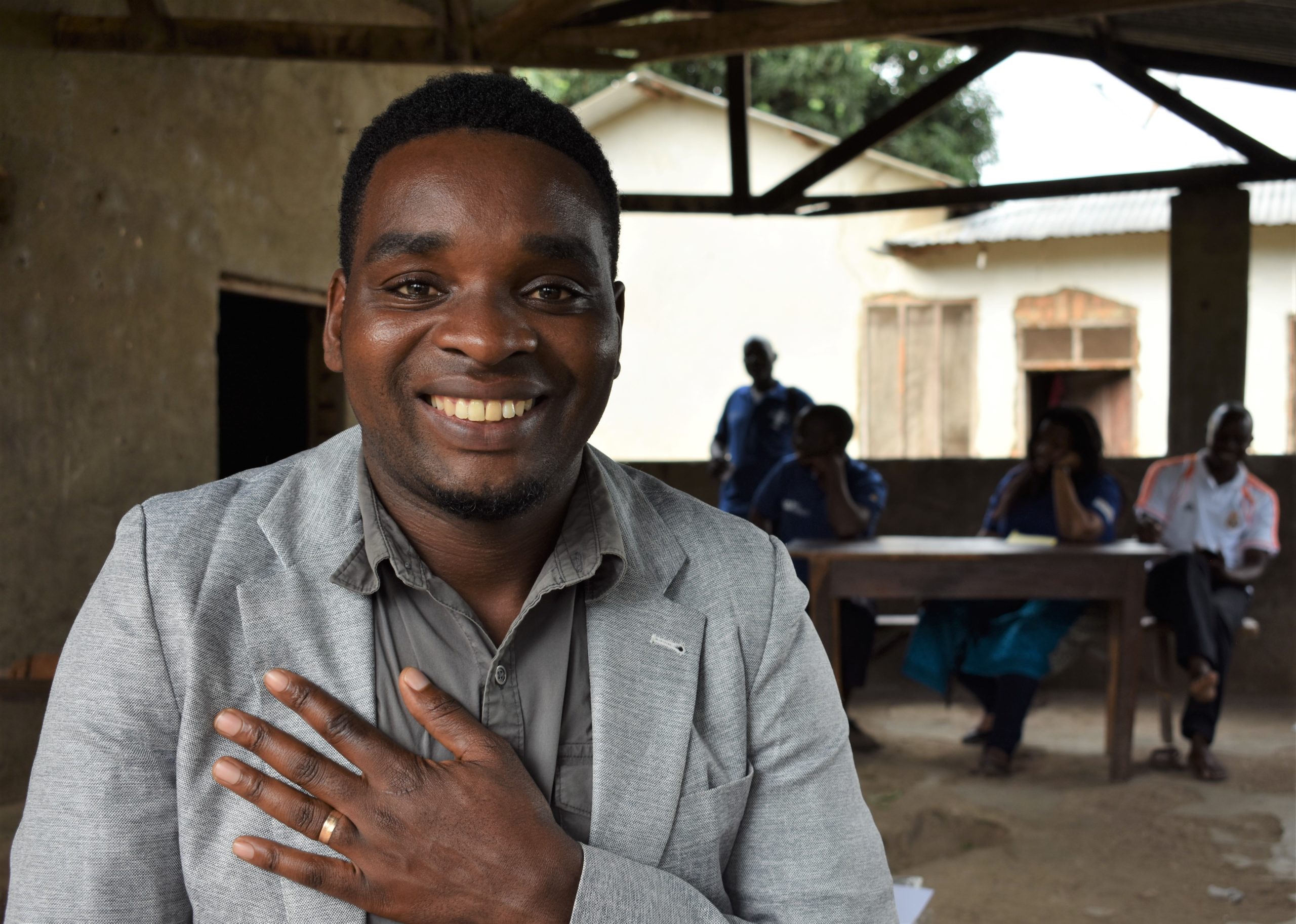
There are several cultural practices that hinder women from owning land [and some cultures] believe women have nothing economic to contribute to the family but that’s not true. No-one has an agreement with God to live forever, so if you give women the chance to own land you will prepare for the family’s future. It’s important for both men and women to own land.
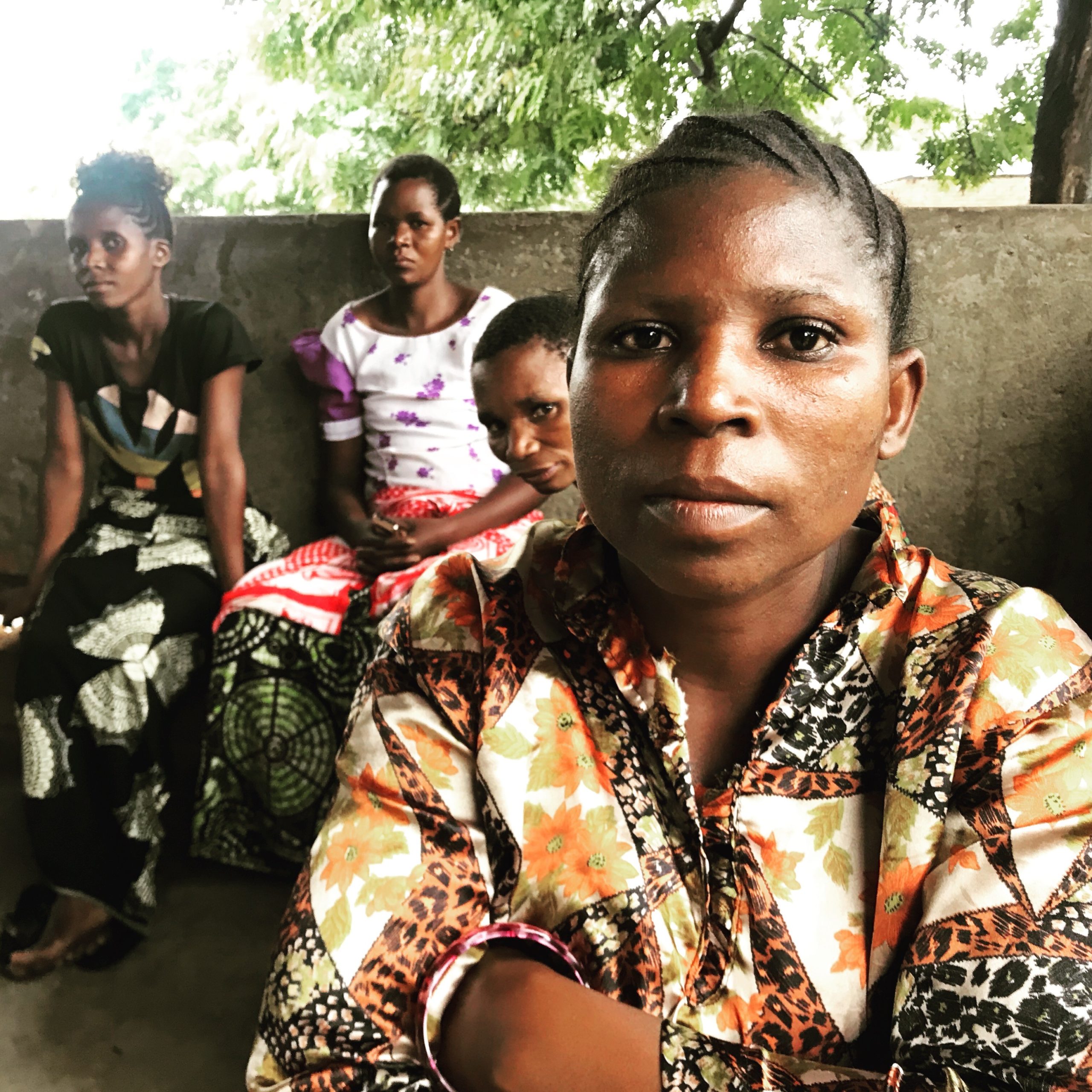
Sophia was married twice, abused twice and has divorced twice. With the help of a S4HL Tanzania coalition member, she now has land and property of her own, is safe from domestic violence and is running her own business.
ACTIVITIES: A SNAPSHOT


Capacity building and awareness raising
Working to build capacity and awareness of communities - particularly women, youth, men, local government and traditional leaders - on women land rights, women’s role in land governance and gender transformative approaches to address to cultural and societal barriers for women’s secure land rights, as well as enhance rural women’s agency, voices and leadership in land decision making.

Identification of community WLR champions
These are grassroots women, traditional leaders, and influential women & men in community who are identified and trained on gender-transformative approaches to work as agents of change in their communities by raising awareness and organising grassroots movements.


Community dialogues on WLR
S4HL TZ hosts community dialogues to increase engagement and bring more voices on issues of women’s rights to land. They are aimed at helping communities identify key challenges facing women on land issues and agree on solutions for addressing those challenges. These are organised on form of tournaments, informal and formal community meetings and women groups/forums in villages.
Know-Your-Rights Guide
TrustLaw, the Thomson Reuters Foundation’s global pro-bono legal program, has teamed up with Stand for Her Land Tanzania to create a women’s land rights guide in order to simplify key legal issues into one succinct resource for the campaign and its awareness-raising and advocacy efforts. It is focusing on 6 thematic areas: Individual and joint ownership of land by women; women’s rights to communal lands; customs, traditions and values that discriminate against women; women’s economic empowerment; women’s participation in decision-making bodies; and women’s rights in relation to land investments.
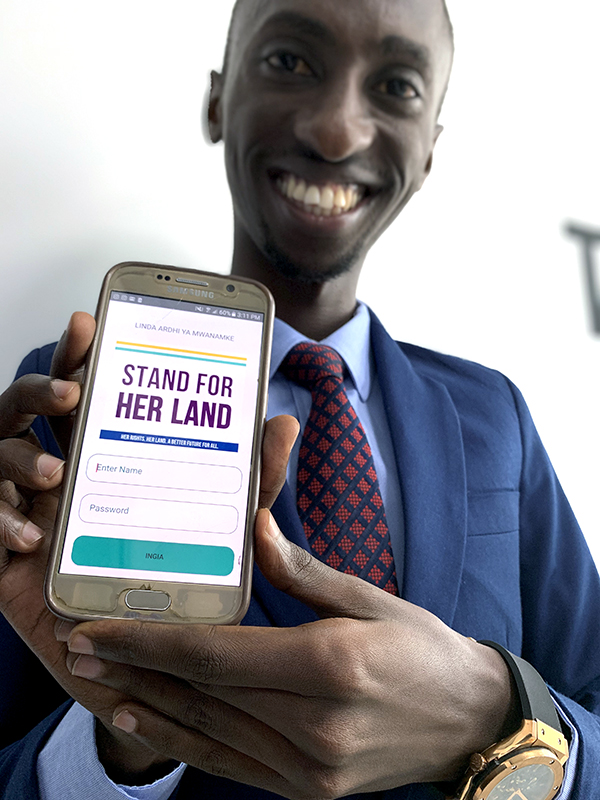
Law On Your Palm
Sheria Kiganjani, which translates from Kiswahili as “Law On Your Palm,” is a new mobile application developed to provide legal aid in remote parts of the country. The eponymous social enterprise that created it joined forces with Stand for Her Land to design a dedicated feature on women’s land rights. The application enables users to access legal services directly from a cell phone or other mobile device, thereby reducing barriers to justice in rural areas where the nearest legal aid service could be a day’s journey away. It also serves as a data collection tool for legal aid volunteers working in remote communities. Stand for Her Land has rolled out a pilot with these volunteers and plans to scale its use through the course of the campaign.
Dissemination of WLR Information Fliers
The S4HL TZ coalition has disseminated fliers in Swahili with WLR information to women, men, and local government leaders that attend S4HL events. It contains information on women's land rights per Tanzania’s existing laws, policies, and legal frameworks. This flier was developed by HAKIARDHI and Landesa as a key resource for advocacy on WLRs.
Member Organizations
Coordinator: Tanzania Women Lawyers Association (TAWLA)
ActionAid Tanzania
ARISE TZ
Bright Jamii Initiative (BJI)
CARE International TZ
Centre for Advancement of Women in Agriculture in Tanzania (CAWAT)
Equality for Growth (EfG)
Habitat for Humanity Tanzania
HAKIMADINI
Kaengesa Environmental Conservation Society (KAESO)
Kinnapa development Program (KINNAPA)
Land Rights Research and Resources Institute (HAKIARDHI)
Landesa
Legal and Human Right Centre (LHRC)
Liberty Sparks
Maasai Pastoralist Development Organization-Lareto (MPDO-Lareto)
Morogoro Paralegal Centre (MPLC)
Participatory Ecological Land Use Management (PELUM) Tanzania
Pastoral Women’s Council (PWC)
Sauti Jamii Kipunguni
Sheria Kiganjani
Tanzania Federation of Disabled People’s Organisations – Shirikisho la Vyama Vya Watu Wenye Ulemavu Tanzania (SHIVYAWATA)
Tanzania Gender Networking Programme (TGNP)
Tanzania Land Alliance (TALA)
Tanzania Media Women’s Association (TAMWA)
Tanzania Natural Resources Forum (TNRF)
The A'ray Justice and Peace Initiative (TAJPI)
The Nature Conservancy Tanzania (TNC)
Ujamaa Community Resource Team (UCRT)
UN Women
UNICEF Tanzania
VP Alumni
WeEffect
Women in Law and Development in Africa (WiLDAF)
Women Legal Aid Centre (WLAC)
Women’s and Men’s for Destined Achievements (WOMEDA)
YILAA Tanzania

